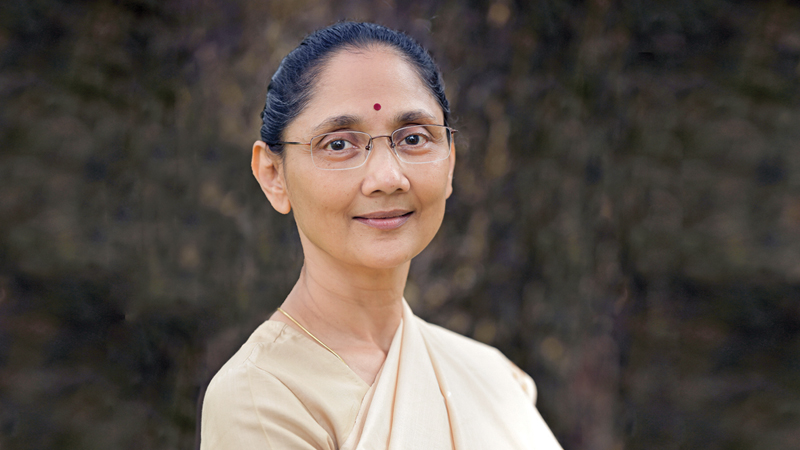Bhagavad Gita presents the eternal and universal principles of life and living. It is the philosophical content of the great epic Mahabharata. The central theme of Mahabharata is the dynastic struggle between two sets of cousins, the Pandavas and Kauravas in a royal family. They represent the higher and the lower values in human respectively. The Kauravas having larger forces than Pandavas suggests that evil forces are generally more in number. Their battle in Kurusketra represents the conflict between the lower and higher values in every human.
Bhagavad Gita is in a conversation form between Lord Krishna and Arjuna on the battle field. Where in Krishna a master of spiritual wisdom gives out the eternal truths of life along with a systematic method to imbibe them and reach human perfection.Krishna with his sermon lifts Arjuna from his despondent state and inspires him to perform his duty as a ksatriya, a warrior. In the present context Arjuna signifies an active person who struggles with the crisis in life. The philosophy of Gita revives and recharges Arjuna with a higher vision of life.
He fulfils his obligation, fights the battle and emerges victorious. This shows the power of the teaching of Gita. It bestows human with the courage and conviction to overcome the challenges of life and achieve success and enduring peace.
The chapter 6 of the Bhagavad Gita is entitled ‘The Yoga of Meditation’. In this chapter Krishna emphasises the important pre-requisite for meditation. Also gives the procedure for meditation. A mind which is riddled with desires and agitations is not qualified to meditate. First the mind has to be purified through the practice of spiritual disciplines namely karma yoga – path of action, bhakthi yoga – path of devotion, jnana yoga-path of knowledge. Such a mind becomes qualified for higher concentration. With further mental withdrawal one will be able to meditate, to maintain single pointed thought on the supreme Self within. Through sustained meditation one attains the ultimate goal of Self-realisation.
This year the annual Bhagavad Gita lectures in Colombo will be a physical event. Sunandaji, the daughter-disciple of Swami Parthasarathy will be delivering a 5-day lecture series on the 6th chapter of the Bhagavad Gita entitled ‘The Yoga of Meditation’. The lectures will be held from March 2 to 6 from 6.45 pm to 8pm at the Buddhist Cultural Centre, Near Thummulla Junction, Colombo 5. This annual Bhagavad Gita lecture series is sponsored by Kanapathy Chetty Selvanathan Charitable Trust.
Umayal Venugopal, disciple of Swami Parthasarathy conducts weekly classes on the Bhagavad Gita, Vedanta sessions and programs for youth. Currently, Bhagavad Gita Chapter 10 weekly study classes are being conducted every Sunday from 4.45 pm to 6 pm at the Oneness Centre, 3A Col Jayawardene Mw, Colombo 6.
All these sessions are open to all and free. For details and registration visit our website vedantacolombo.org or or contact +94 762796113.









